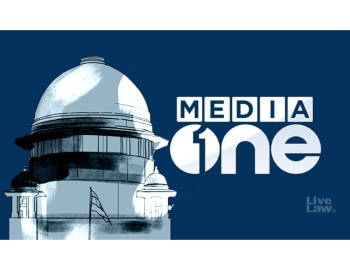
.png) Joseph Maliakan
Joseph Maliakan
.jpg)
On May 1, 2023, Media One, the Malayalam television channel which was banned by the Union Ministry of Information and Broadcasting (MIB ) on January 31, 2022, has organised a special meeting at the Constitution Club at the Vithalbhai Patel House in New Delhi to celebrate its victory in the Supreme Court of India.
The meeting reminded this reporter of a meeting at the same venue 47 years ago, in 1976, to protest against the internal emergency imposed by then Prime Minister Indira Gandhi in the name of ' national security.' Many opposition leaders including Jayaprakash Narain, Atal Behari Vajpayee, L.K. Advani , George Fernandes, Madhu Limaye and Raj Narain were still in jail and the Press was under strict censorship. Nothing, even Rabindranath Tagore's poems could not be published without the approval of government Censor!
Addressing the gathering then, Mr. K. G. Kannabiran, a leading human rights activist and lawyer from Andhra Pradesh, reminded everyone that ‘what is anti-national today will be national tomorrow and what is national today will be anti-national tomorrow.’ It was the time when the government had moved the infamous 42nd amendment to the Constitution, which has since been repealed. In the Janata Party Government, Mr Advani took charge of the Ministry of Information and Broadcasting and had taken a series of steps to restore press freedom, including restoring the Press Council of India which was abolished during the emergency.
For several years after the emergency, people thought that freedom of the press would never be in peril in the country. However, to everyone's shock and surprise, Indira Gandhi's son Rajiv Gandhi as Prime Minister in 1988 passed a Defamation Bill in the monsoon session of the Parliament to curb the press in the name of preventing "scurrilous writing" and "criminal imputation."
The Defamation Bill was brought after the media in the country published reports after reports accusing the Rajiv Gandhi government of accepting bribe of 65 crore in the Bofors gun deal. (Sixty-five crore was a huge sum those days! Of course, peanuts compared to the amounts involved in corruption in preset day deals).
Following nation-wide agitation, specially led by newspaper managements and journalists, Rajiv Gandhi, on September 22, 1988, unconditionally withdrew the Defamation Bill and expressed his support for press freedom.
After Gandhi's attempt to curb the press, the Modi government's ban on Media One is perhaps the most serious and dangerous action to censor the press in India. Ironically, the ban was imposed by followers of Vajpayee and Advani, two stalwarts of the anti-emergency and press freedom movement in independent India. In fact, after the emergency era, Advani famously said that the "journalists were only asked to bend, but they crawled." But then who in the ruling BJP takes Advani's advice seriously anymore?
Now coming back to Media One ban, the first response issued by its then Editor-In-Chief, C. L. Thomas, said: “... This is a blatant attack against free and fair reporting. The order issued by MIB is for criticising the RSS and the Delhi Police. The order also states that Media One has referred to hate speeches made by Kapil Mishra, the BJP leader from Delhi, as a reason for igniting violence in Delhi…. This is nothing but an order to stop free and fair journalism. Media One will fight legally against this unprecedented and undemocratic action imposed by the Information and Broadcasting Ministry."
However, the ban order on January 31 on Media One was issued by the MIB without mentioning any reason. Though a single judge bench of the Kerala High Court granted stay on the ban the same day, the ban was upheld by the single judge on February 8. A writ petition was filed before Division Bench of the Kerala High Court on February 9, but on March 2, it held that there was nothing illegal about the MIB ban order against Media One.
On March 4, Media One filed an appeal in the Supreme Court and on March 15, Justice D Y Chandrachud stayed the Kerala High Court order upholding Media One ban and allowed the channel to continue its operations. On April 5, the Supreme Court set aside the Kerala High Court order and directed MIB to renew the licence of Media One within four weeks.
Chief Justice Chandrachud’s verdict covers several basic issues that affect the life of the common people, freedom of speech, natural justice, national security and sealed cover jurisprudence which is against the principle of rule of law.
Writing the judgement for himself and Justice Hima Kohli, he held that taking evidence in a sealed cover causes serious prejudice to the rule of law. The court further held that the Union Government could not prove that the material based on which the ban was imposed could not be disclosed because most of material it relied on was in the public domain.
The Supreme Court order said that the non-disclosure of reasons for the denial of security clearance to the appellants and the disclosure solely to the court in a sealed cover has restricted the core of the principles of natural justice -- the right to a fair and reasonable proceeding.
The order pointed out that mere involvement of issues concerning national security would not preclude the state's duty to act fairly. If the state discards its duty to act fairly, then it must be justified before the court on the facts of the case.